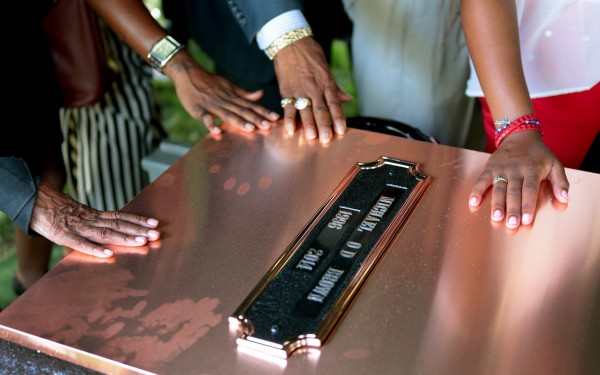Why Not Michael Brown?
September 14, 2014

This past summer, the wrongful shooting of a young African American male by a white police officer grabbed the nation’s attention. I am, of course, talking about the wrongful shooting of Michael Brown by Darren Wilson, although it’s certainly not the first (and not even the only one this summer), nor the most shocking instance of police brutality directed at black males that we have witnessed. So why has this particular case started what’s tantamount to a movement?
I say, why not Michael Brown and why not now? For starters, I think it has to do with the location of the murder: Ferguson, Missouri. A small town with an African American majority and a Caucasian American minority, it’s easy to imagine that the citizens of Ferguson were fed up with the blatant racism directed towards them by white people in power. The story of the wrongful death of Michael Brown alone did not make national news—it was the riots that came from the reaction of his fatal shooting by police officer Darren Wilson.
I was, and still am, disgusted with the actions of the citizens of Ferguson. Deciding and beginning to loot local neighborhood shops made their points invalid—at first. Breaking into the stores of other hard working people in the community to bring attention to the cause was not the answer, and worked only to cast a negative light on the very valid points of the protestors, although it started a national spread of awareness and brought a tremendous amount of support for the issue. I still have to say the negativity just kept piling on at first.
I think what caused tension to boil so rapidly was that the African American community of Ferguson has had enough of police brutality. It wasn’t the particular case of Michael Brown that caused a national movement: we’ve simply reached a breaking point, and will no longer sit idly by in the face of an unjust and unfair system. Racial tensions in Ferguson could have already been, and probably were, at an all-time high: this is, after all, a Midwestern state lying right above Arkansas and Mississippi (which throughout history have been home to a tremendous amount of racial hate crimes).
This case is undoubtedly about race, but I believe the “breaking point” extends beyond just that. Even if Brown had committed a crime, or even if Wilson’s “reasonable suspicions” were truly reasonable, the fact that shooting and killing a young boy was his first course of action is telling. There are countless nonviolent—and even more nonfatal—methods for policemen and policewomen to invoke when handling a suspected criminal. There is really no excuse for the use of fatal force, and when unreasonable levels of force are used by our police, they should be held accountable—like when Frank Phillips, an officer in Knox County in Tennessee, was fired shortly after photos were released of him choking college student Jarod Dotson (a white male) until he nearly passed out. Phillips was fired immediately for an excessive use of force, while Wilson still remains free (and on paid leave, for that matter). This begs the rather terrifying question: Does our system simply not work, or does it work exactly the way it was intended to?
Ferguson is not the only place where people have recognized that our police system overwhelmingly targets minorities, and is unnecessarily violent and militarized. If it takes Michael Brown’s passing to shed yet another light on policemen taking their job to another extreme, then so be it. Over the last 22 years, America has dealt with and saw the LA riots of 1992, a riot that took place after the proceedings of the case of Rodney King, a young African American male also wrongly gunned down by policemen. The riots were an outbreak due to justice not being served in court. Although I don’t agree with the methods of the rioters, it brought attention to Los Angeles: the attention of many activists and supporters who wanted to show their solidarity for the cause of a wrongful death and the lack of a fair and balanced way of dealing with police brutality.
Social Media has played a major role in how we receive news, and the many people on Facebook, Twitter, and even Instagram brought attention to and shed light on the Michael Brown story. There was a lot of general support or no support buzzing all over the internet and got many people involved with the situation going on in Ferguson—and without it, the Brown’s story would likely have not gotten the attention it deserved. People for once took charge of what the media portrayed and put their voice out there, whether they agreed or disagreed.












Samantha • Oct 27, 2014 at 9:46 am
Rodney King wasn’t gunned down by police, he was beaten. the police didnt kill him. edit your article.
Poster • Sep 16, 2014 at 8:15 pm
This is incredibly offensive.
J. Samboy • Sep 16, 2014 at 2:30 pm
Wonderfully written! I encourage young people to remain informed& empowered by knowing history, policies and laws surrounding their individual rights. Super proud of you sister!